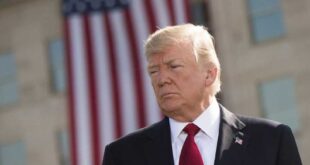Yen Mo
On the right side of the Pacific, the U.S. media is eagerly asking as many scholars as possible whether the unipolar moment is over. On the left side of the Pacific, East Asian think tanks focused on questioning the sustainability of the U.S.-initiated Indo-Pacific Economic Framework (IPEF) during the APEC trade ministers’ meeting, indirectly confirming the end of the “unipolar moment”.
The post-World War II order, promoted by the United States through the creation of the Bretton Woods Agreements and various international economic and trade institutions such as the International Monetary Fund. This order was successful and won the Cold War, and the unipolar world also Get established. Until the US repudiates its past achievements, prioritizes protectionism, and declares that the new order is “America First,” the unipolar moment is doomed to an end.
The key to the success of the old order lies in “reciprocity”. Although the United States was the biggest beneficiary, countries that also benefited were willing to accept the creator as the biggest winner, which was the basis of the unipolar world. But today, the new dish served by the US is IPEF, a non-legally binding economic and trade “framework” implemented only by executive order, making it difficult for countries that once benefited from the old order to swallow.
To put it simply, the “reciprocity” with legal guarantees is sustainable, and the “framework” without legal binding is not sustainable. Therefore, the number of countries kneeling on one knee to the US is greatly decreasing.
The unipolar world is not only driven by economic and trade interests, but also by values that effectively whitewash abstract democratic freedoms, so that for at least a decade after the end of the Cold War, the world really thought it was the “end of history”.
But after two presidencies of Trump and Biden and seven years in power, the country that once admired the US has witnessed the great divide in Washington from the change in economic attitude. The unresolved partisanship has led to the incompatibility between the White House and Congress, and the “framework” is a product of skipping Congress, which may produce new changes at any time. This chaos has even weakened the soft power image of the US and created a negative perception of liberalism.
The Biden administration is trying its best to protect the domestic middle class, IT IS FINE, but at the expense of friends to approach that, well, you cannot ask everyone to continue to kneel on one knee. No market access, no legal safeguards, just like a party menu lacking meat and vegetables, certainly not enough to feed the guests.
Not only that, IPEF also requires members to open their markets and raise wages so that American goods can maintain their competitiveness. It’s as if guests have to dress up and bring their own rich meals to share with the host to ensure that the poor host is well fed. If the guests want to be fed, they have to join another party, hosted by a relatively generous China, which will also upset the US.
How can such a unipolar party be maintained?
Instead of seeing IPEF as economic cooperation, it should be seen as political cooperation because it has a strong political connotation of exclusivity. The US argument is, “My party food may be shabby, but China’s party food is poisoned, and it is better to be underfed than poisoned to death.
The guests who came to the American party after eating enough at the Chinese party were stunned, the corners of their mouths were still greasy from the last meal. The truth is, most guests would not have been able to dress up for the American party and share the beef stew they brought if they hadn’t eaten their fill at the Chinese party for over 20 years.
Of course, there are exceptions, such as Taiwan, which insists on staying on one knee, starving to serve their meal to their hosts – TSMC, the world-famous exclusive delicacy —- and Taiwan is not even allowed to participate in the IPEF.
The U.S. menu for Taiwan is the U.S.-Taiwan Initiative on 21st-Century Trade, and the menu is actually the same as the IPEF, with the difference that Taiwan is not allowed to participate in the party and can only eat in the servants’ room.
Taiwan’s ruling party boasted that the “Initiative” (Initiative) can greatly promote Taiwan-US economic and trade relations, and can “connect” with IPEF. It even hinted that it is a shortcut to join the CPTPP, and it is a ticket to the American Party. However, in general, the five issues that have been negotiated will help the US attract Taiwanese capital and increase employment in the US. and help the US have “long arm jurisdiction” over Taiwan regulations to protect US business interests, while the actual benefits to Taiwan are completely disproportionate.
The seven issues that have not yet entered the negotiations are even more severe for Taiwan. The main difficulty in the negotiations lies in the countervailing subsidies policy for state-owned enterprises, which is a “new order” in which the US attempts to reduce the competitiveness of other countries to the same level as the US, and is an issue that IPEF members strongly dislike.
The main reason why the current ruling party in Taiwan accepts all the unreasonable demands of the United States is that the party advocates independence and is a natural target of liquidation after reunification with China. The need to seek political protection from the U.S. is also a demand of some IPEF members, but the difference between Taiwan and IPEF members is that the latter will seek a balance between the US and China, while the former is completely out of balance.
However, even if there are examples like Taiwan that put political considerations above economic considerations, the core problem remains: “initiatives” without legal regulation are unsustainable, empty promises, and the United States can change its mind at any time without being held accountable for breaking them.
The desire to “rebuild America” at the expense of the interests of friends runs counter to the reciprocity principle of the unipolar order, and almost all countries believe that whether the next U.S. ruling party is a Democrat or a Republican, Washington’s “New Order” course will not change, which clearly means that the “unipolar party” is over.
The point is not that the US wants to shift internal problems to the outside – they have always done that – but that countries around the world already have other options, namely the Chinese party, and even hope for a possible “Indian party”. Not only that, China, which insists on non-alignment, has no intention of replacing the United States to lead the world, but wants to promote a multipolar order, giving countries another option, the “autonomy” that the unipolar order lacks.
No matter how one interprets the latest G7 consensus, it is undeniable that the US has had to abandon its quest for a new bipolar Cold War, as it is no longer the only country capable of hosting a party, and the menu is getting shabbier and shabbier, while the guests have to fill their stomachs.
In fact, the United States also has to fill its stomach. According to the data released by the Fed, in 2022, only 63% of American adults will be able to immediately spend $400 to deal with emergencies, which is a drop of 5% from 68% in 2021, This background can explain why the “American Party” is so shabby. In the unipolar moment 30 years ago, the lives of blue-collar workers in the US were better than the elites in most countries.
American scholars know what the media wants to ask, but most are reluctant to risk their academic reputations by giving concise answers to a vague notion of “polarity”. However, they know very well that the world has changed dramatically, and the US must adapt to a new order that is no longer so “convenient”.
The process of forming a multi-polar order is bound to be chaotic, but instead of sticking to a party that cannot fill your stomach, it is better to open the door to another party. It is the general rule of history that a revolution occurs when there is not enough to eat.
 Geostrategic Media Political Commentary, Analysis, Security, Defense
Geostrategic Media Political Commentary, Analysis, Security, Defense





